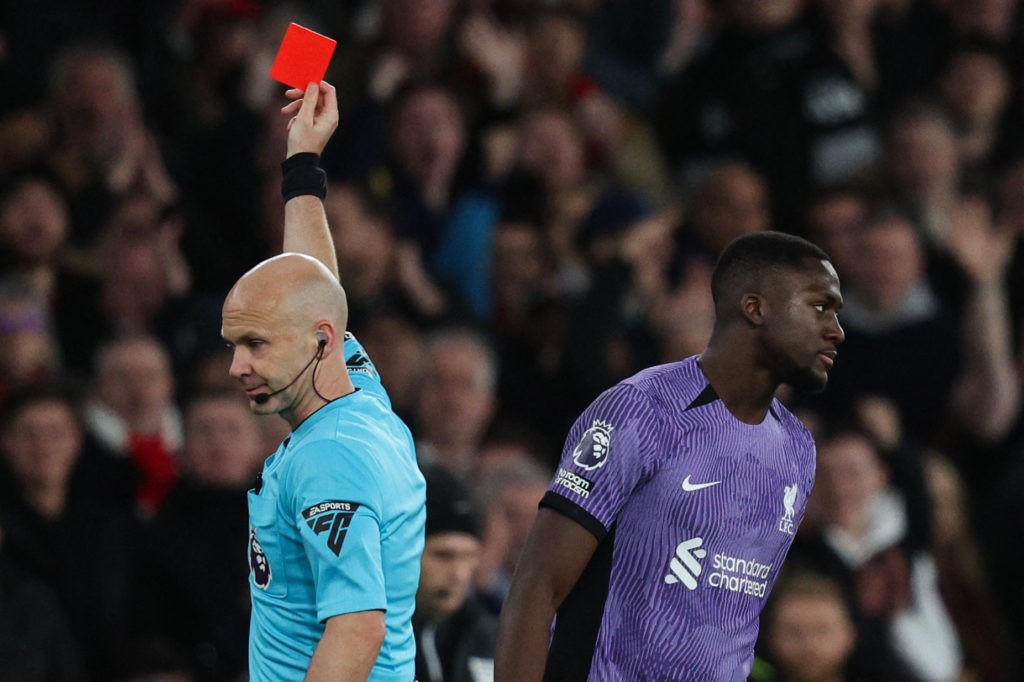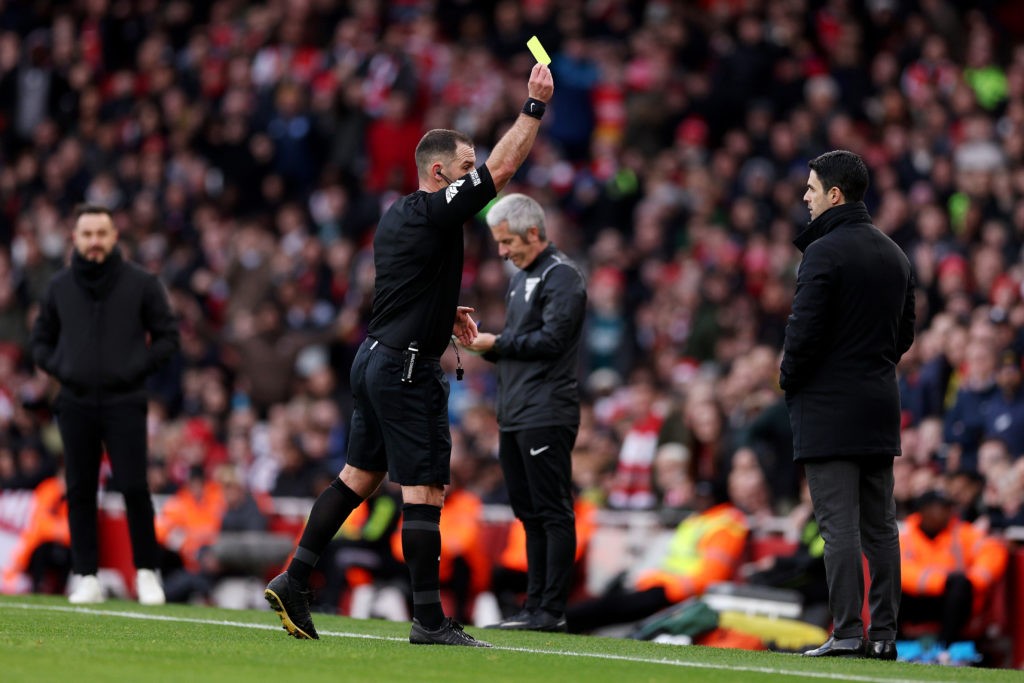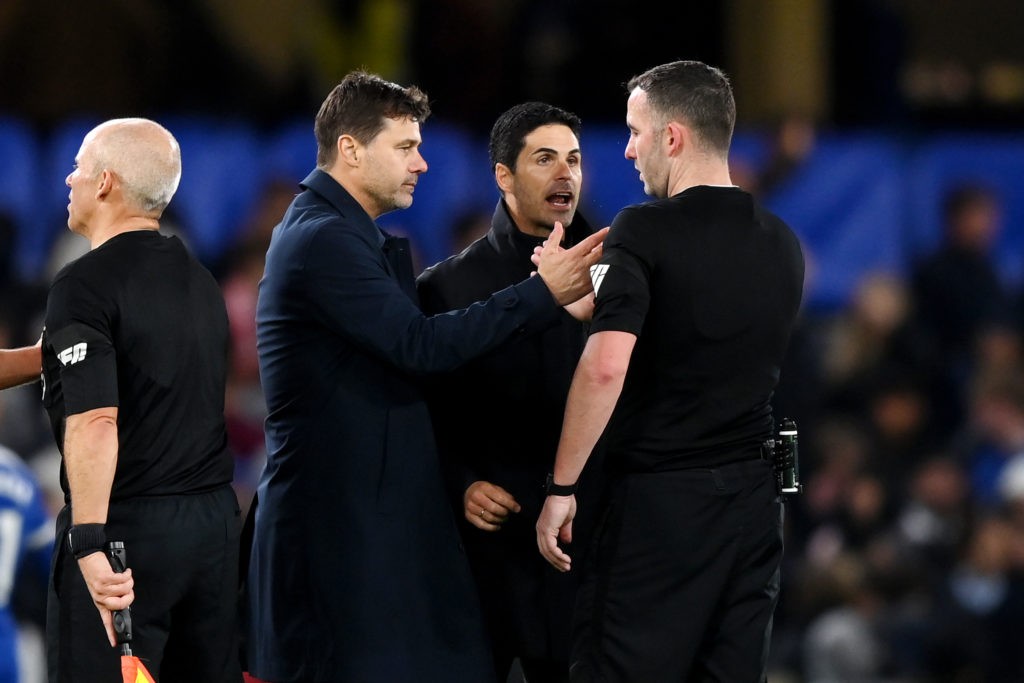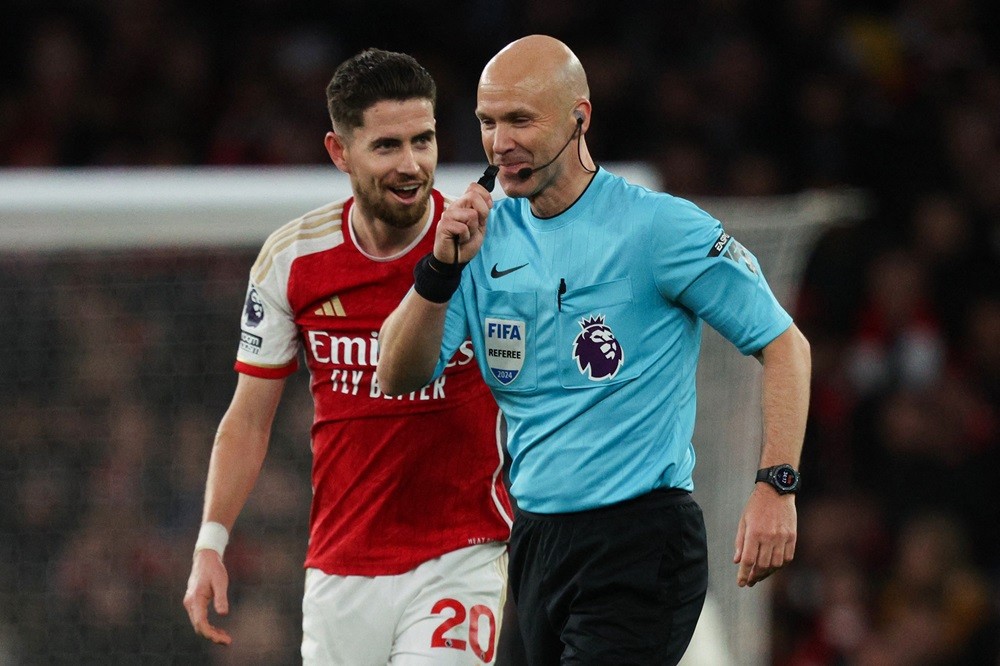Football is set to introduce a new blue card, seeing players removed from the field for 10 minutes, with critics claiming the change ‘adds subjectivity’ to the game.

Earlier this week, The Telegraph broke the news that a new ‘blue card’ will be introduced to football.
The blue card will be awarded in cases of cynical fouls or dissent, and it will result in the player being removed from the field for 10 minutes.
Blue cards will function in the same way as yellow cards with regards to sending-offs, with two blues leading to a red, and one yellow and one blue also leading to a red.
To put it simply, any combination of two cards will result in a sending-off.
Top-tier competitions will reportedly be excluded from initial testing in the professional game, but elite trials could begin this summer, with the FA considering volunteering the FA Cup and the Women’s FA Cup for testing.

The primary complaint from supporters about the new system is that it adds subjectivity.
The suggestion is that referees now have to make a subjective call on whether to award a blue card in a way they wouldn’t have had to before.
It’s undeniably true that there will be subjectivity involved in these calls.
The referee will have to decide whether or not a player did enough to warrant a card for dissent, and whether or not a foul prevented an attack.
But these are the same calls the referee currently makes every single game, every single week.
The referee already has to make a subjective decision over whether a player has prevented a promising attack or dissented, the only difference is the punishment at the end of it.
Before, it was always a yellow card. When the new rules come in, it will always be a blue card. It won’t be a choice of one or the other.

One argument you could make is that this change shines a spotlight on those existing subjective calls, and that’s probably true.
We already see fans over-analyse every yellow-card decision, but it’s likely there would be even more scrutiny on a blue-card call, as there currently is for red cards.
It will be particularly interesting to see whether VAR will be allowed to intervene on blue cards.
But there should be positive consequences too. Lower-level FA trials of the new measures reduced instances of dissent by 38%, with the majority of players (72%), coaches (77%), and referees (84%) reporting in surveys that they wanted to keep sin bins.
A reduction in the number of cynical fouls to prevent counter attacks would also be a good thing for football. It’s all too easy to “take one for the team” and pull a player back to stop a dangerous opportunity with almost no consequences.
Teams like Manchester City have found great success in rotational fouling. They might be less willing to do so if they lost a player for 10 minutes every time they cynically stopped a counter. That seems like a good thing too.
The new measures are coming, at this point all we can do is sit back and watch how they play out in top-tier trials.

